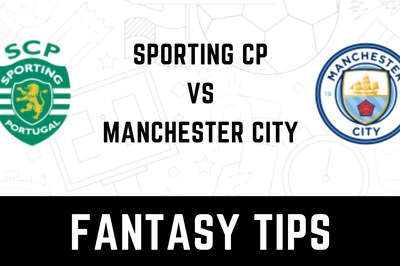
views
What does “who asked” mean?
“Who asked” is an impolite response, similar to “Shut up.” While not as openly harsh as “shut up,” “Who asked?” is a rude way to tell someone you don’t care about what they have to say. “I’ve been having such a good time reading this new book, I feel like it’s a lot better than the first one in the series, and I’m excited to see where it goes!”“Weird, I was looking around to see who asked, but I couldn’t find anyone.”
How to Respond to “Who Asked”
Sincere responses When someone puts you down, divert the energy of the insult by ignoring the person, questioning their comment, or sincerely telling them how you feel about it. These kind of responses can sometimes stop a conversation in its tracks, so use them when someone has actually hurt your feelings: Did I ask you to interrupt me? The point I’m raising is mine, not yours. If you have an issue, no one asked you to be here. So if you didn’t ask about something, is it not important? What do you mean by that? I’m just having a conversation.
Comebacks If you know the person well and want to keep the conversation moving, you can use a quick comeback. Generally, comebacks are best when they’re composed on the spot, directly from what the other person has said. If you know someone who puts you down often, listen to them closely so you’ll be quick on the draw the next time they say “Okay, well who asked?” No one, who asked you? No one asked you to listen. The same person who gave you the idea to speak. No one, but you’re welcome. No one asked, but maybe you’d learn something if you’d shut up and listen. Funny, I didn’t realize I needed your permission to speak. Who made you the arbiter of what can and cannot be said? Grow up dude. Anyway… That’s weird, I thought we were having a conversation. Well you answered. No one, but it’s obvious you needed a clue. No one, I just couldn’t resist correcting you. Could you be an adult for one second? Thanks. No one, but it was painful watching you struggle. My moral obligation to correct you. No one, but I couldn’t let you go on like that.
Funny responses In very casual settings, you can play around more with your responses. When you engage with someone who is putting you down, however, you open up the opportunity to hurt other people’s feelings, as well. My brain, it thought you needed help. Apparently, I did, because you’re struggling. Common sense did. I thought we were all sharing bad ideas today. Just thought you needed some guidance. It was a public service. Just thought I’d save you from further embarrassment. My sense of duty to society. My responsibility to the truth. No one, but someone had to. Whoever makes you think you’re always right. I’m just here to improve the conversation. No one, but clearly someone needed to. No one, but I did hear a cry for help.
“Who Asked You” and “Who’s Asking”
People say “Who asked you?” when they don’t want an outside opinion. Saying “Who asked you?” unlike “Who asked?” shows that another person’s opinion on something that affects your life isn’t welcome. It’s still a rude comment, but it is more situationally dependent than “Who asked?” “I don’t think you can afford a new pet right now.”Who asked you? “You should turn left here if you want to be on time.”I’m sorry, who asked you? “Break up with him!”Who asked you!?
"Who’s asking?” is a polite way to find out who is speaking to you. The phrase “Who’s asking?” is most commonly used over the phone when you don’t know who the caller is. If someone says “Hey, is Jona there?” and you don’t know who they are, you can say “Yes, may I know who’s asking?”
Who Asked Meme
"Who asked”/“Nobody asked” is a popular reaction image phrase. Reaction images or GIFs are used similarly to emoticons to express how the poster is feeling at a certain moment. Starting in 2019, the text “who asked,” or “nobody asked” was superimposed over these images to show that nobody cares.
"Who asked”/“Nobody asked” is similar to “Cool story, bro.” “Cool story, bro” is another sarcastic phrase that was popularly used on the internet to shut people down or insult the quality of what they had to say. It was often used when a post was too long to read, boring, or irrelevant to other parts of the conversation.




















Comments
0 comment